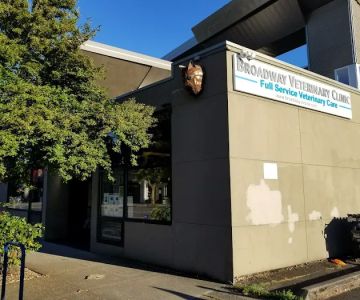1- Understanding the Importance of Post-Surgery Care for Pets
After surgery, whether it's a routine procedure or a more serious operation, pets need extra care and attention to ensure a smooth recovery. Proper post-operative care is essential for preventing complications, promoting healing, and providing comfort to your pet during their recovery period. Pet owners play a crucial role in ensuring that their pets heal well after surgery, and knowing how to care for them properly is key to success.
2- What to Expect After Your Pet's Surgery
Understanding what happens after surgery can help you better prepare for your pet’s recovery. After surgery, pets may experience some level of discomfort, swelling, or lethargy. Depending on the type of surgery, your pet may also have specific restrictions on movement or activities. It’s essential to follow the veterinarian’s instructions closely and be vigilant about any signs of complications, such as infection or unusual behavior.

8897 Eagle Ridge Ct, West Chester Township, OH 45069, USA
See Details2.1- Common Signs of Recovery
During the recovery process, you should expect your pet to show signs of healing. Some common signs of recovery include:
- Reduced swelling around the surgical site
- Gradual return of appetite
- Increased activity as they begin to feel better
However, it's important to remain patient and understanding, as the recovery process may take some time.
2.2- Possible Signs of Complications
While most pets recover without issue, it's essential to monitor for potential complications. If you notice any of the following, consult your veterinarian immediately:
- Excessive swelling or redness at the surgical site
- Persistent vomiting or diarrhea
- Excessive lethargy or refusal to eat
- Signs of infection such as a foul odor
3- Tips for Caring for Your Pet After Surgery
Here are some important tips to ensure that your pet recovers well after surgery:
3.1- Provide a Comfortable Recovery Space
Setting up a quiet, comfortable space for your pet to recover is crucial. Choose an area that is away from household noise or distractions. Ensure the area is clean and has a soft surface for them to lie on. Avoid letting your pet jump onto furniture or navigate stairs during their recovery period to prevent any strain on their healing body.
3.2- Follow Medication Instructions
Your veterinarian will likely prescribe medication to manage pain or prevent infection. It's crucial to follow the dosage instructions carefully. If your pet is having difficulty taking their medication, ask your vet for alternatives such as pill pockets or liquid forms. Ensuring your pet receives the correct medications will significantly impact their comfort and recovery speed.
3.3- Monitor the Surgical Site
Regularly check the surgical site for any signs of infection or abnormal changes. Ensure that your pet does not lick or bite the area, as this can cause complications. You may need to use an Elizabethan collar (also known as a "cone") to prevent them from disturbing the site. If there are sutures, follow the veterinarian’s advice about when and how to remove them.
3.4- Restrict Physical Activity
Limiting your pet’s physical activity is essential to avoid reopening the surgical site or causing additional strain. Avoid long walks, running, or playing with other pets until your vet clears your pet for more activity. Instead, offer quiet time indoors and short bathroom breaks only.
4- Case Study: A Pet’s Recovery Journey
Consider the case of Bella, a dog who underwent a routine spaying surgery. Her owner, Sarah, took proactive steps in setting up a recovery area in her home where Bella could rest peacefully. Sarah followed her vet’s advice on limiting Bella’s activity, ensuring she took her prescribed pain medications on time, and carefully monitoring the surgical site. Bella showed signs of recovery after just a few days, and by week two, she was back to her normal playful self. This story highlights how following proper care guidelines and staying attentive can lead to a smooth recovery for your pet.
5- The Role of Professional Veterinary Services in Post-Surgery Care
Having access to professional veterinary care post-surgery is crucial. Hidden Brook Veterinary offers exceptional services and advice to ensure that your pet’s recovery goes smoothly. From regular check-ups to emergency care, veterinarians play a pivotal role in guiding you through the recovery process and addressing any concerns that may arise.
6- Additional Products for Post-Surgery Care
To make your pet's recovery more comfortable, consider exploring some of the helpful products available at Hidden Brook Veterinary. Some of these include:
- Recovery cones and collars
- Pill dispensers for easier medication administration
- Soft bedding for post-surgery comfort
- Hydrating sprays and soothing balms for the surgical site
These products can make a significant difference in your pet’s recovery and comfort levels, ensuring a safe and efficient healing process.
7- Conclusion
Caring for your pet after surgery requires patience, attention to detail, and a strong commitment to their well-being. By providing a comfortable recovery environment, following your veterinarian’s instructions, and closely monitoring your pet, you can ensure that they heal properly and return to their normal activities. If you’re unsure about any part of your pet’s recovery, don’t hesitate to reach out to a professional like Hidden Brook Veterinary for expert guidance.










